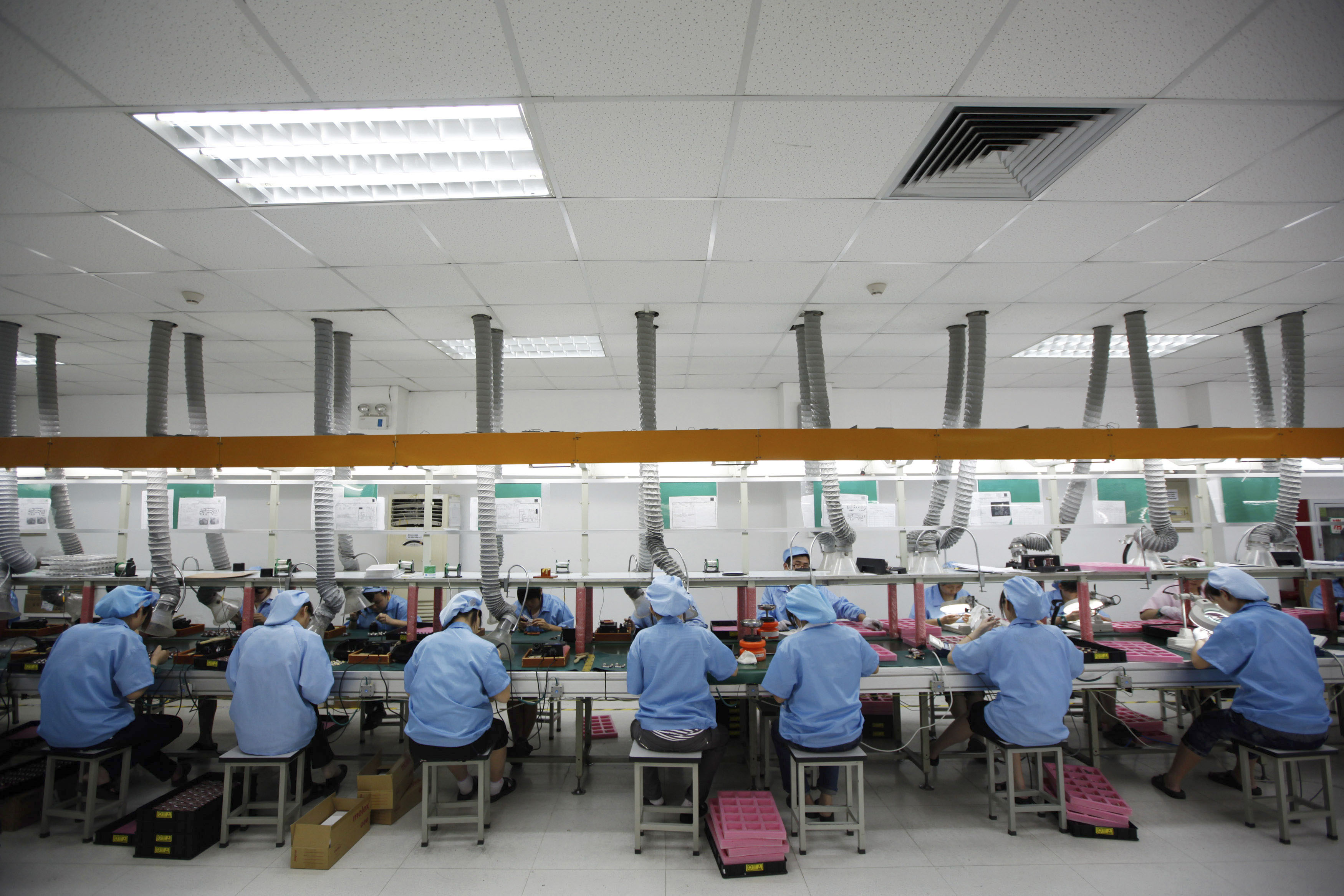
Action urged to end workers’ exploitation

When buying goods, many Swiss communes just look at the price and don’t think about how they were produced, according to a charity.
Swiss Labour Assistance (SLA) hopes to change this shopping policy through a campaign drawing attention to exploitation, slavery and work undertaken by children.
Paving stones for Swiss streets produced under conditions of exploitation in Indian quarries or footballs for schools sewn by Pakistani children. These are examples the charity gives of purchases made by Swiss local councils.
“Instead of trying to save a few francs when purchasing goods, the communes and towns should be trying to adhere to basic human rights and labour laws,” urged Labour Assistance’s media officer Christian Engeli.
The public sector can effect change and can exert an influence on producers, particularly when the purchases are large-scale, Engeli says.
SLA estimates the volume of goods purchased annually by the public purse at SFr36 billion ($35 billion). According to Engeli, the greatest need is for stone, used by the building sector, and textiles, required for hospitals and old people’s homes.
Coffee and tea served in the canteens of local government buildings and footballs used in schools also make up a large proportion. “Fair trade products could be an alternative,” said Engeli.
The SLA campaign, launched on August 23 to mark International Day for the Remembrance of the Slave Trade and its Abolition, calls for fair sourcing. On its website the Swiss can check with their commune whether it buys its goods fairly. “What kind of exploitation do you want?” asks the provocative title.
Dedication
In the communes there are many people who are dedicated to achieving social sustainability, says Engeli, pointing to towns which have a policy of buying only goods produced under fair working conditions.
“Zurich and Arlesheim [outside Basel] are the most consistent,” said Engeli, adding that around 100 communes from Bern to Lucerne had already signed up to a fair purchasing policy.
Canton Graubünden had created new guidelines on fair sourcing, he said, but had not gone as far as committing itself to only buying fairly produced goods.
In total around 2,500 communes still bought goods produced by means of worker exploitation, the SLA media spokesman said. The hope was that the campaign would bring about a change of policy.
“Our experience shows that the communes will answer people [who ask about their purchasing policy], even if they are not obliged to,” he said. “We’re expecting hundreds of requests to be sent to the communes.”
Taxpayers’ money
But price is still used as an argument. The public sector is under pressure to save money. But “cheap” should not mean “exploitatively cheap”, says Engeli. Two years ago the SLA ran a campaign demanding “No exploitation with taxpayers’ money”.
Other development organisations and aid agencies make the same demands. Church charities Bread for All and the Lenten Fund ran a campaign entitled “Stop Unfair Trade” in spring of this year.
The two organisations also presented the results of their surveys on fair trade in public sector sourcing which revealed an uneven picture in cantonal sourcing.
“An interesting detail is that procurement offices, which had already introduced social and ecological criteria, had not noted a considerable cost increase,” said Beat Dietschy, general secretary of Bread for All.
SLA, Bread for All and the Lenten Fund all belong to an informal working group pushing for fair trade and fair working conditions.
“Unworthy working conditions and unfair trade are in our view a major cause of poverty and hunger in many developing countries,” said Dietschy. Given the increasing poverty round the world, it is not a matter of goods but of human lives.
Viera Malach, swissinfo and InfoSud (Adapted from German by Morven McLean)
About 12 million people in the world are treated as slaves according to the SLA.
218 million children are subjected to forced labour.
1.2 billion people – or nearly 20% of the population – work for less than $2 a day.
1.8 billion people have informal and low-paid jobs and no formal contracts, legal protection or social security coverage. In contrast 1.2 billion people have job contracts.
About 40% of all employees earn less than $2 and live below the poverty line, defined by the UN.

In compliance with the JTI standards
More: SWI swissinfo.ch certified by the Journalism Trust Initiative





























You can find an overview of ongoing debates with our journalists here . Please join us!
If you want to start a conversation about a topic raised in this article or want to report factual errors, email us at english@swissinfo.ch.